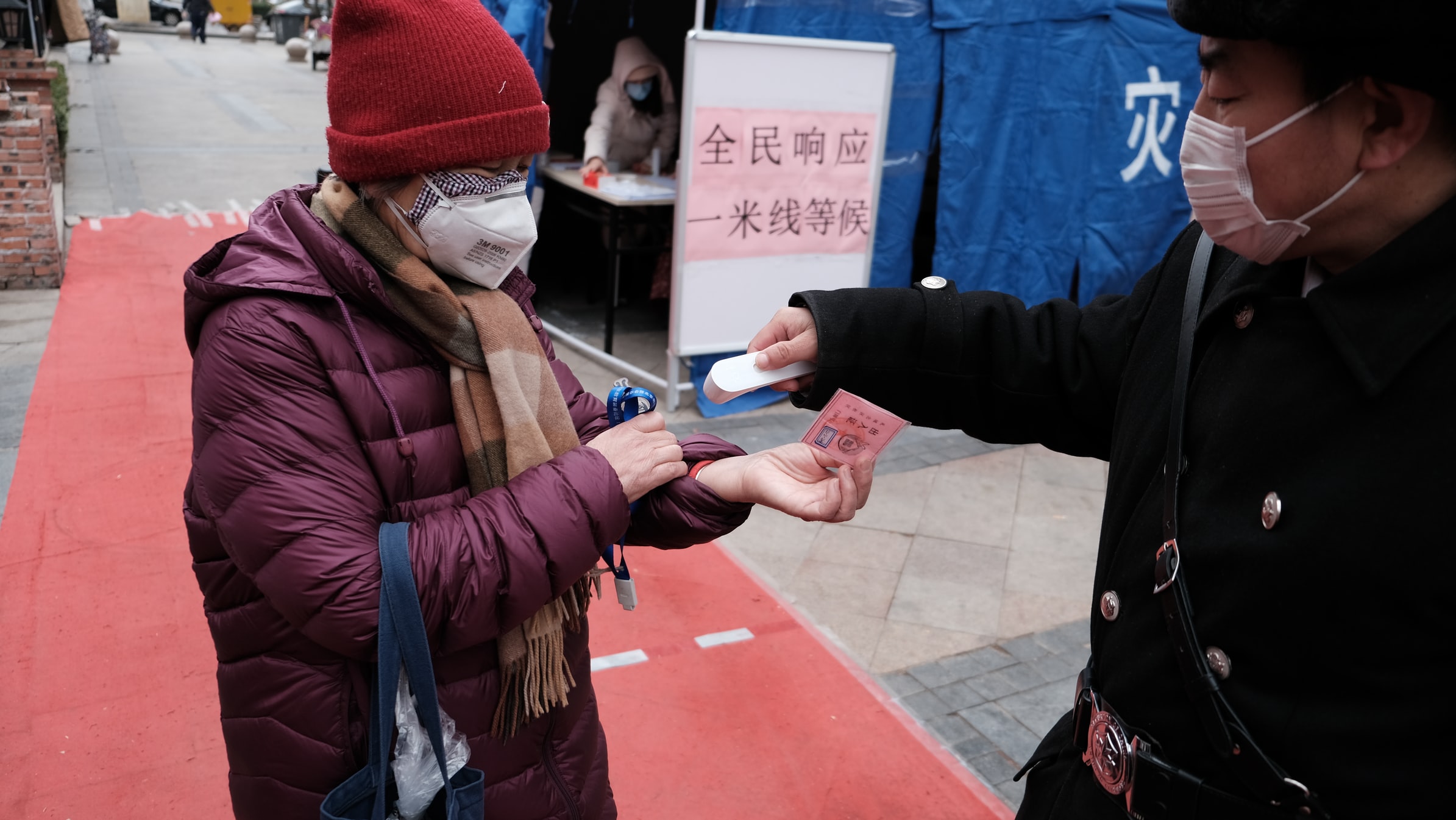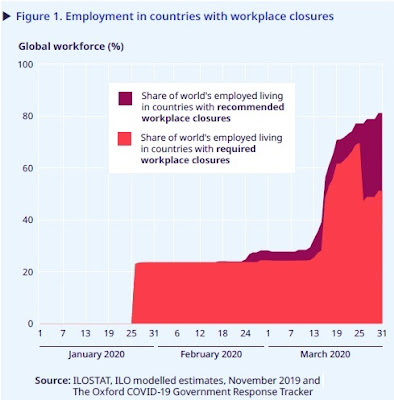Amidst our concerns about jobs in the local or national labor market, spare a thought for the effects of COVID-19 lockdowns on the global labor force.
In many lower-income countries, the burden of government rules that have the effect of shutting down businesses will fall on workers who have little or no access to a government funded social safety net. The International Labour Organization offers an overview in its ILO Monitor, on the theme " COVID-19 and the world of work" (April 7, 2020, Second edition, Updated estimates and analysis).
As the ILO notes, "Full or partial lockdown measures are now affecting almost 2.7 billion workers, representing around 81 per cent of the world’s workforce."
The ILO focuses on those who work informally in the world economy.
Around 2 billion people work informally, most of them in emerging and developing countries. The informal economy contributes to jobs, incomes and livelihoods, and in many low- and middle-income countries it plays a major economic role. However, informal economy workers lack the basic protection that formal jobs usually provide, including social protection coverage. They are also disadvantaged in access to health-care services and have no income replacement if they stop working in case of sickness. Informal workers in urban areas also tend to work in economic sectors that not only carry a high risk of virus infection but are also directly impacted by lockdown measures; this concerns waste recyclers, street vendors and food servers, construction workers, transport workers and domestic workers.
COVID-19 is already affecting tens of millions of informal workers. In India, Nigeria and Brazil, the number of workers in the informal economy affected by the lockdown and other containment measures is substantial (figure 3). In India, with a share of almost 90 per cent of people working in the informal economy, about 400 million workers in the informal economy are at risk of falling deeper into poverty during the crisis. Current lockdown measures in India, which are at the high end of the University of Oxford’s COVID-19 Government Response Stringency Index, have impacted these workers significantly, forcing many of them to return to rural areas.
Countries experiencing fragility, protracted conflict, recurrent natural disasters or forced displacement will face a multiple burden due to the pandemic. They are less equipped to prepare for and respond to COVID-19 as access to basic services, especially health and sanitation, is limited; decent work, social protection and safety at work are not a given; their institutions are weak; and social dialogue is impaired or absent.
Here's a figure showing informal work and stringency of lockdown rules by country. The ILO report notes: "The horizontal, x-axis of this chart displays University of Oxford’s COVID-19 Government Response Stringency Index. The vertical, y-axis shows informal employment as a share of total employment in the respective country, based on internal ILO calculations. As a third dimension, the respective size of each bubble shows the relative size of total informal employment in each country, which is calculated by multiplying the percentage of informal employment (i.e. the value shown on the y-axis) by total employment as per ILOSTAT’s modelled estimates for 2020."

The short takeaway here is that being put out of work by anti-COVID-19 government policies is harsh everywhere, but it is especially harsh without a government safety net. Sheltering in place and social distancing become even more difficult when economic necessity forces people to migrate back to their families in rural areas. In addition, future researchers seeking to evaluate the effects of social distancing and lockdown policies around the world will surely be comparing examples of countries with less or more stringent policies, like Indonesia and India.
A version of this article first appeared on Conversable Economist.





Leave your comments
Post comment as a guest